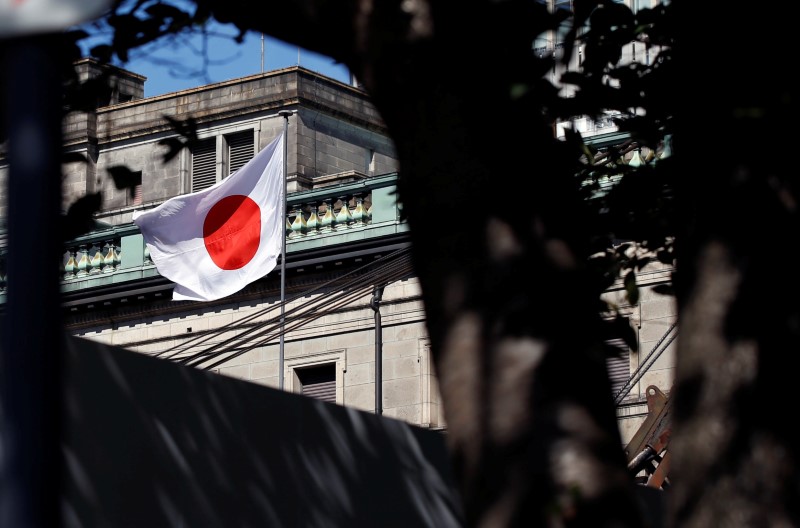By Tetsushi Kajimoto
TOKYO (Reuters) - Japan's headline inflation slowed in March from February, highlighting the central bank's struggle to hit its 2 percent price growth target after five years of heavy stimulus, keeping it under pressure to maintain an ultra-easy monetary policy.
The core consumer price index, which includes oil products but excludes volatile fresh food prices, rose 0.9 percent year-on-year in March, matching economists' median estimate, Ministry of Internal Affairs and Communications data showed on Friday.
It followed a 1.0 percent gain in February.
Analysts expect core consumer inflation to peak later this year as upward price pressure from energy and food is likely to moderate, and will raise more hurdles in the Bank of Japan's path to exiting easy monetary policy.
"We expect inflation excluding fresh food to average 1 percent in the current fiscal year, below the median forecast among BOJ board members of 1.4 percent," said Marcel Thieliant, senior Japan economist at Capital Economics.
"If we are right, the bank will have to reduce its inflation forecasts yet again over the coming months, underlining that policy tightening is a long way off."
Sources familiar with the central bank's thinking said it is likely to maintain the view that inflation will reach its 2 percent target next fiscal year, and will stay near that level the following year, when it issues new forecasts next week.
Those projections could increase the prospects of the BOJ deciding to debate whittling down its massive stimulus next fiscal year.
But a complete shift to monetary tightening is unlikely as BOJ Governor Haruhiko Kuroda has said inflation must exceed a stable 2 percent before the bank can trim its huge holdings of government bonds and exchange-traded funds.
Friday's data showed the so-called core-core inflation index, which excludes fresh food and energy prices and is similar to the core index used in the United States, rose 0.5 percent in the year to March - flat from the previous month.
Japan's economy, the world's third largest, expanded at an annualized 1.6 percent in October-December, posting its longest continuous expansion since the 1980s bubble economy, on the back of solid capital spending.
Japan's unemployment rate hovers near a 25-year low at 2.5 percent, which should encourage inflation by putting upward pressure on wages.

However, consumer prices have risen more slowly than the BOJ had hoped, as companies hold off on raising prices and wages, citing uncertainty over the economic outlook.